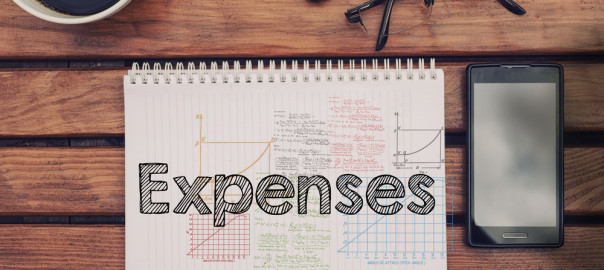Adding Up Your Rental Expenses
By JD Esajian on March 23, 2015
Regardless of your approach to rental properties, it is critical that you brace for the worst case scenario. If you do not have reserves in place, all it takes is one bad tenant or one major repair to wipe out years of hard work. It is also important to know where your money is going. Every expense you make can mean the difference between a property that shows positive cash flow and one that is barely breaking even. If you don’t know where your money is going or anticipate problems before they happen, you can be in for a rough ride when it comes to your rental properties. Rental expenses can add up. Make sure you account for everything.
As much as you think your property will never have anything wrong with it, odds are that it will. As the owner of a rental property, the buck stops with you. If something goes wrong, it is up to you to take care of it. Everything from a clogged toilet to a leaky roof is your responsibility to fix. The single most important thing you can do as a rental property owner is to have maintenance reserves in place. Without capital to fix or replace big ticket items, you will be forced to take money from other areas of your business or pay for the items on credit. Even worse: if you don’t have money and need time to fix things, you will certainly upset your tenant and run the risk that they will leave at any time. If this happens, you will no longer have rent coming in, and you will still be left with repairs that need your attention. A rental property is only as good as your treat it. If you don’t have funds for repairs – big and small – you will quickly be out of the business.
As good as your existing tenants may be, you never know when they will have an unexpected problem. If they can’t pay their rent, you still have to pay the mortgage. Without ample reserves to pay a month or two of missed payments, you could be looking at a foreclosure. Even if your tenant quickly recovers, you may still have a mortgage late or two on your credit report. That alone can permit you from buying in the future. Your lease offers you some protection, but by the time the eviction process plays out you could be looking at several months down the road. You may also have some gaps between leases that require you to cover one month on the mortgage every year or every other year. Your credit is too valuable not to have reserves in place.
Even if things are going well and you don’t have an immediate need for reserves, there are many items that can eat away at monthly profits. Seemingly minor things that we take for granted have to be accounted for. If you have a property in the Northeast you know just how much the snow can be a problem. Paying for snow removal can quickly add up and if you pay per snowfall you could be looking at several hundred dollars just in the last six weeks alone. Once the weather warms up you need to take care of your lawn and yard. You can keep a lawnmower in the garage or shed and spend the time to cut the grass yourself every week or you can pay to have it done. Even if you only have it cut twice a month for five months you are still looking at a least a few hundred dollars for the spring and summer. This may not seem like much but when you add it with the snow removal it can equal as much as a hundred dollars a month. If you didn’t factor this into your bottom line the property may not seem as appealing as it once did.
There are also several expenses that are not on every investor’s radar. Little bills like water, sewer, garbage removal and utilities can eat away at your monthly cash flow. Some of these items may be quarterly but they still have to be paid. You can pass some of these along to your tenants but that decreases the appeal of your property and will often have a negative effect. If you pay these smaller bills you can demand a higher rental amount. In addition you need to take care of your property and perform seasonal maintenance. Items like the fireplace, furnace, oil tank and central air will run more efficiently and effectively if they are maintained at least once a year. This may seem like wasted money but you need to consider that you are protecting your investment and can’t defer this from one year to the next. By spending less than $100 every year you can get five years or more without having to replace these large ticket items.
Rental properties can be a great addition to any portfolio, but you should have a good idea of what you are getting into. The expenses quickly add up. Without reserves or an understanding of what they cost, a good property can quickly lose appeal or profitability. Find a spreadsheet or a program that can help detail all the expenses you could potentially face. These expenses can often make all the difference.